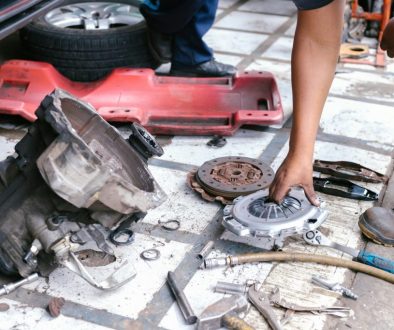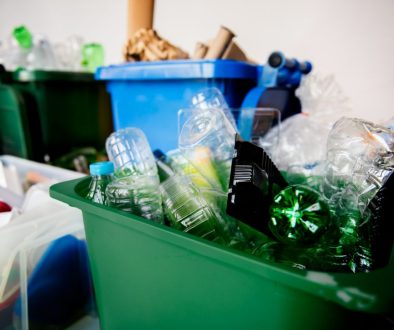Aggregates and gravel are fundamental components of various construction and landscaping projects. Extracted through mining, dredging, or quarrying, these materials are used for applications such as road construction, concrete production, drainage systems, and decorative landscaping. However, the extraction and use of aggregates and gravel can have significant environmental consequences, posing risks to natural habitats, water resources, and soil quality. As a result, it is essential for contractors, builders, and homeowners to understand the environmental implications of using these materials, and to consider sustainable, eco-friendly alternatives when available.
In this informative guide, we will delve into the environmental impact of aggregate and gravel usage in construction projects, while also discussing sustainable alternatives and responsible sourcing practices. We will explore how Enviro Skip Hire, a family-owned skip hire and aggregate company based in Staffordshire, is committed to environmental stewardship and responsible sourcing by offering eco-friendly aggregates and gravel to local customers. These offerings, combined with the company’s expertise in waste management services, make them a reliable partner for environmentally-conscious construction and landscaping enthusiasts.
Equip yourself with the knowledge you need to make well-informed decisions about the aggregates and gravel you use in your projects, regardless of their scope or size. By understanding the environmental impact of these materials and making responsible choices, you can play a vital role in minimising the ecological footprint while contributing to a more sustainable future in the building and construction industry. Let Enviro Skip Hire guide you towards an eco-conscious approach and facilitate your journey towards a greener planet.
The Environmental Impact of Aggregates and Gravel Extraction
The extraction of aggregates and gravel for construction projects can have significant environmental repercussions, which need to be understood and addressed. Some of the key environmental concerns related to aggregate and gravel extraction are:
- Habitat Loss: The extraction process results in the removal of vegetation, topsoil, and overburden, leading to the destruction of valuable habitats for flora and fauna. This results in the loss of biodiversity and endangers local ecosystems.
- Water Resource Degradation: Aggregate and gravel extraction often requires the pumping of large volumes of water, leading to decreased water levels and disturbances of natural water flow. This might decrease the water availability for nearby communities, negatively impacting water quality, aquatic life and potentially causing soil erosion.
- Air Pollution: The extraction, transportation, and processing of aggregates and gravel generate dust and particulate matter, contributing to air pollution and negatively affecting local air quality.
Sustainable Alternatives and Responsible Aggregate Sourcing
Given the environmental impact of aggregate and gravel extraction, the demand for sustainable alternatives has grown significantly in recent years. These alternatives and responsible sourcing practices include:
- Recycled Aggregates: One of the most prominent sustainable alternatives is using recycled aggregates, such as crushed concrete and brick, generated from demolished buildings and construction waste. These materials can be processed and reused for various construction applications, minimising the need for primary aggregate extraction while reducing waste sent to landfills.
- Locally-sourced Materials: Sourcing aggregates and gravel locally minimises the distance required to transport materials from extraction sites to construction projects, thereby reducing carbon emissions associated with transportation and helping to decrease the overall environmental impact.
- Marine Aggregates: When the extraction process follows strict guidelines to minimise the impact on marine ecosystems, marine aggregates can present a sustainable alternative to land-based aggregates. This involves careful monitoring and managing of the extraction process to minimise disruptions to marine life and reduce the risk of habitat destruction.
- Sustainable Quarrying Practices: Ensuring responsible sourcing from aggregate suppliers who adopt sustainable quarrying practices, such as site rehabilitation, groundwater protection, and energy-efficient processing methods, contributes towards mitigating the environmental impact of these resources.
Enviro Skip Hire’s Commitment to Sustainable Aggregates and Gravel
Enviro Skip Hire continually strives to implement environmental practices and sustainability goals throughout its operations, particularly concerning its aggregates and gravel offerings. The company champions sustainability by:
- Promoting Recycled Aggregates: Emphasizing the use of recycled aggregates, Enviro Skip Hire supplies materials such as crushed concrete, suitable for various construction and landscaping projects. This commitment to providing eco-friendly alternatives promotes resource efficiency within the industry.
- Adherence to Environmental Regulations: Enviro Skip Hire adheres to strict environmental regulations and consistently ensures that their aggregate products comply with all relevant rules and guidelines.
- Educating Customers: The experienced team at Enviro Skip Hire educates customers on the benefits and applications of sustainable aggregates and gravel solutions. By raising awareness about eco-friendly construction materials, they encourage responsible sourcing and environmental stewardship within the building and construction industry.
Implementing Sustainable Aggregates and Gravel in Your Projects
To incorporate sustainable aggregate and gravel materials in your construction or landscaping projects, consider the following tips:
- Identify Suitable Materials: Collaborate with your construction team to evaluate the feasibility of using sustainable aggregate alternatives in your project. Research the benefits, suitability, and potential limitations of different eco-friendly materials, such as recycled concrete and marine aggregates.
- Evaluate Suppliers: Source sustainable materials from reputable suppliers like Enviro Skip Hire, which demonstrate ethical and environmental commitments in their practices, ensuring compliance with relevant regulations, and maintaining high-quality standards.
- Monitor Environmental Impact: Regularly assess and monitor the environmental impact of your project, setting specific goals to reduce the ecological footprint and improve sustainability outcomes.
Conclusion
As we become increasingly conscious of our environment, the need to consider sustainable alternatives and responsible sourcing practices in aggregate and gravel usage is more critical than ever. Understanding the environmental impact of aggregate and gravel extraction, engaging with responsible suppliers, and actively advocating for eco-friendly construction materials are all crucial steps towards a more sustainable future in the building and construction industry.
Trust Enviro Skip Hire for your aggregates and gravel needs, and partner with a company that values environmental stewardship, offering sustainable material solutions and expert guidance. As a family-owned, environmentally responsible company in Staffordshire, Enviro Skip Hire is dedicated to facilitating a greener building and construction landscape for generations to come.




